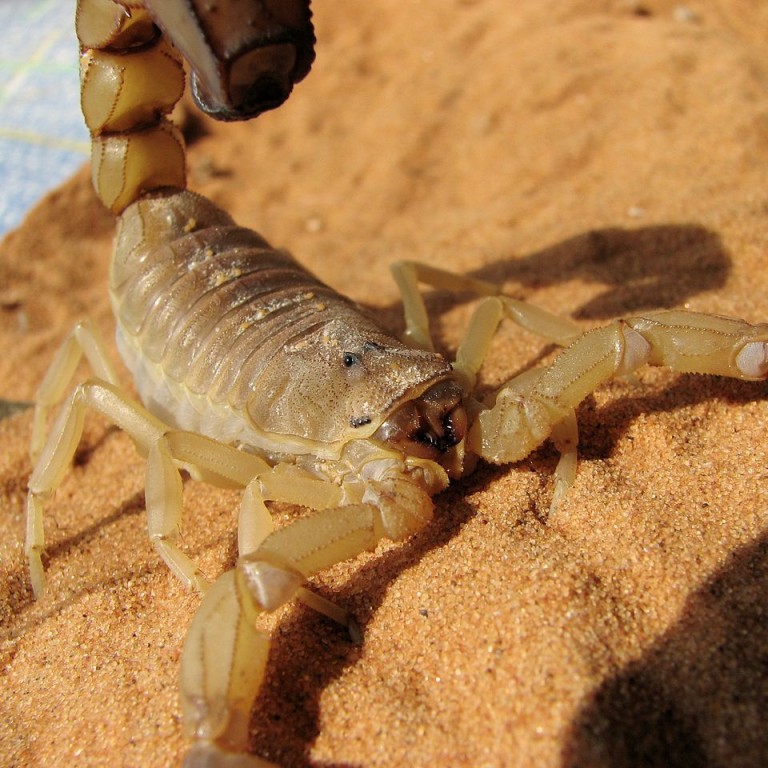
New | Chinese authorities find almost 100 'man-killer' scorpions in parcels sent from Germany
Inspectors in Shantou, Guangdong province have seized around 100 scorpions found in parcels sent from Germany.
According to the Southern Metropolis Daily, on September 4 staff from the inspection and quarantine bureau were examining a suspicious parcel sent from Germany when they discovered 46 live scorpions inside. Five days later, a similar parcel turned up, this one containing more than 50 anthropods.
Tests showed the parcels contained six kinds of scorpions, including a Tunisian fat-tailed scorpion (Androctonus australis or "southern man-killer"), one of the most dangerous in the world, with a potentially lethal sting.
The trade in exotic and endangered animals is rife in China, and many species enter the country via mail order or hidden in suitcases. In 2013, officials at exit-entry points across China seized more than 240,000 batches of wild animals concealed to avoid quarantine.
Under Chinese law, only cats and dogs can cross the border, and only after going through a strict quarantine procedure. Despite this, the trade in exotic pets continues, with many consumers ordering animals online, either unaware or unconcerned that what they're doing is illegal.
A search for live scorpions on Taobao, China's largest online marketplace, turned up dozens of results, including species from Africa and Southeast Asia. Some scorpions retail for as little as 30 yuan (HK$37).
"Because scorpions are sent by long-distance transport, [they] may move around on the road, [and] you may receive a scorpion in a daze," one seller warns potential customers. "Do not move, do not open the case, don't worry too much, after a few days it will be fine."
According to the Beijing Entry-Exit Quarantine and Inspection Bureau, 10 of the 16 animal and plant species banned from being brought into China are sold openly online.
"Most tourists who try to take wildlife or plants across the border intend to sell them to pet stores," Wang Yao, of the bureau's plant and animal department told China Daily last year. "Many don't even know what they are doing is illegal."
